Conclavoscope - Analyse der Kardinäle der katholischen Kirche
Ideologische und pastorale Positionierung der Kardinäle
Mit dem Tod von Papst Franziskus richten sich viele Blicke auf das nächste Konklave. Hier sind die "Papabili": Kardinäle, die als die wahrscheinlichsten Nachfolger von Franziskus gelten. Diese Analyse präsentiert die wahrscheinlichsten Kandidaten, gruppiert nach ihren theologischen und pastoralen Tendenzen.
Diese Kardinäle sind fest mit der katholischen Tradition verbunden und lehnen neuere Reformen entschieden ab, insbesondere die Einschränkung der tridentinischen Messe, geheime Abkommen mit China, die Kommunion für wiederverheiratete Geschiedene und Segnungen für gleichgeschlechtliche Paare.

Geboren am 15. Juni 1945 in Ourous, Guinea, wurde Robert Sarah 1969 zum Priester geweiht. Mit 34 Jahren wurde er 1979 Erzbischof von Conakry und war damit der jüngste katholische Bischof seiner Zeit. Er hatte diese Position bis 2001 inne, während der er sich dem marxistischen Regime von Sékou Touré widersetzte und die Religionsfreiheit und Autonomie der Kirche verteidigte. (Cardinal Robert Sarah: A Leading Contender for the Pope Office, Pope Francis accepts Cardinal Robert Sarah's resignation from ...)
2001 wurde er zum Sekretär der Kongregation für die Evangelisierung der Völker ernannt, dann 2010 zum Präsidenten des Päpstlichen Rates Cor Unum. Im selben Jahr wurde er von Benedikt XVI. zum Kardinal kreiert. 2014 ernannte ihn Papst Franziskus zum Präfekten der Kongregation für den Gottesdienst und die Sakramentenordnung, eine Position, die er bis zu seiner Pensionierung 2021 innehatte. (Pope Francis accepts Cardinal Robert Sarah's resignation from ..., 14 cardinals will no longer be electors at the end of 2025 - Aleteia, Le cardinal Sarah ne sera bientôt plus électeur du Conclave - Aleteia)
Als Autor mehrerer einflussreicher Werke wie Gott oder nichts (2015), Die Kraft der Stille (2016) und Der Abend naht und der Tag ist schon im Sinken (2019) ist er für seine Verteidigung der traditionellen Werte der Kirche bekannt.
Kardinal Sarah wird als konservative Figur identifiziert, die der traditionellen Liturgie und den klassischen moralischen Lehren der Kirche verbunden ist. Er kritisiert die Säkularisierung und verteidigt eine Vision der Kirche, die auf Gebet, Stille und doktrinäre Treue zentriert ist.
Er genießt die Unterstützung von Kardinälen, die seine traditionellen Überzeugungen teilen, insbesondere in Afrika und Europa. Da jedoch die Mehrheit der Wahlkardinäle von Papst Franziskus ernannt wurde, könnte sein Einfluss im Vergleich zu Kandidaten, die stärker mit den jüngsten Reformen übereinstimmen, begrenzt sein.
Diese Kardinäle sind an der Ratzinger-Linie ausgerichtet und sind aus theologischer, moralischer und pastoraler Sicht konservativer, akzeptieren aber das Zweite Vatikanische Konzil und seine Reformen.

Geboren am 31. Dezember 1947 in Finthen bei Mainz (Deutschland), wurde Gerhard Ludwig Müller 1978 zum Priester geweiht. Er promovierte in Theologie unter der Leitung von Kardinal Karl Lehmann mit einer Dissertation über Dietrich Bonhoeffer. 1986 wurde er Professor für Dogmatik an der Ludwig-Maximilians-Universität München. (Gerhard Ludwig Müller - Wikipedia, Gerhard Ludwig Müller, Liberation Theology Interview with Archbishop Gerhard Ludwig Müller)
2002 von Johannes Paul II. zum Bischof von Regensburg ernannt, zeichnete er sich durch seine Nähe zu Joseph Ratzinger, dem späteren Benedikt XVI., aus, der ihn mit der deutschen Ausgabe seiner gesammelten Werke betraute.
2012 ernannte ihn Benedikt XVI. zum Präfekten der Kongregation für die Glaubenslehre, eine Position, die er bis 2017 innehatte. Er wurde 2014 von Papst Franziskus zum Kardinal kreiert. (Cardinal Gerhard Müller: le pape au COE, un bon signe pour l'œcuménisme ..., Gerhard Ludwig Müller Biography - Pantheon World)
Seit dem Ende seines Mandats als Leiter der Kongregation für die Glaubenslehre ist Kardinal Müller zu einer der Hauptfiguren der konservativen Strömung innerhalb der katholischen Kirche geworden. Er kritisiert regelmäßig bestimmte Ausrichtungen des Pontifikats von Franziskus, insbesondere in Bezug auf Doktrin und sakramentale Disziplin. (Cardinal Gerhard Müller: le pape au COE, un bon signe pour l'œcuménisme ..., Gerhard Ludwig Müller)
Kardinal Müller wird als Vertreter der konservativen Strömung identifiziert. Er besteht auf der Treue zur traditionellen Lehre der Kirche und äußert Vorbehalte gegenüber bestimmten jüngsten pastoralen Entwicklungen, insbesondere hinsichtlich der Sexualmoral und der sakramentalen Disziplin.
Obwohl er von Franziskus zum Kardinal ernannt wurde, steht er konservativen Kreisen nahe, insbesondere in Europa und Nordamerika. Da jedoch die Mehrheit der Kardinalwähler von Franziskus ernannt wurde, ist sein direkter Einfluss innerhalb des Wahlkollegiums begrenzt. (Cardinal Müller: Church risks split if it elects a liberal pope)
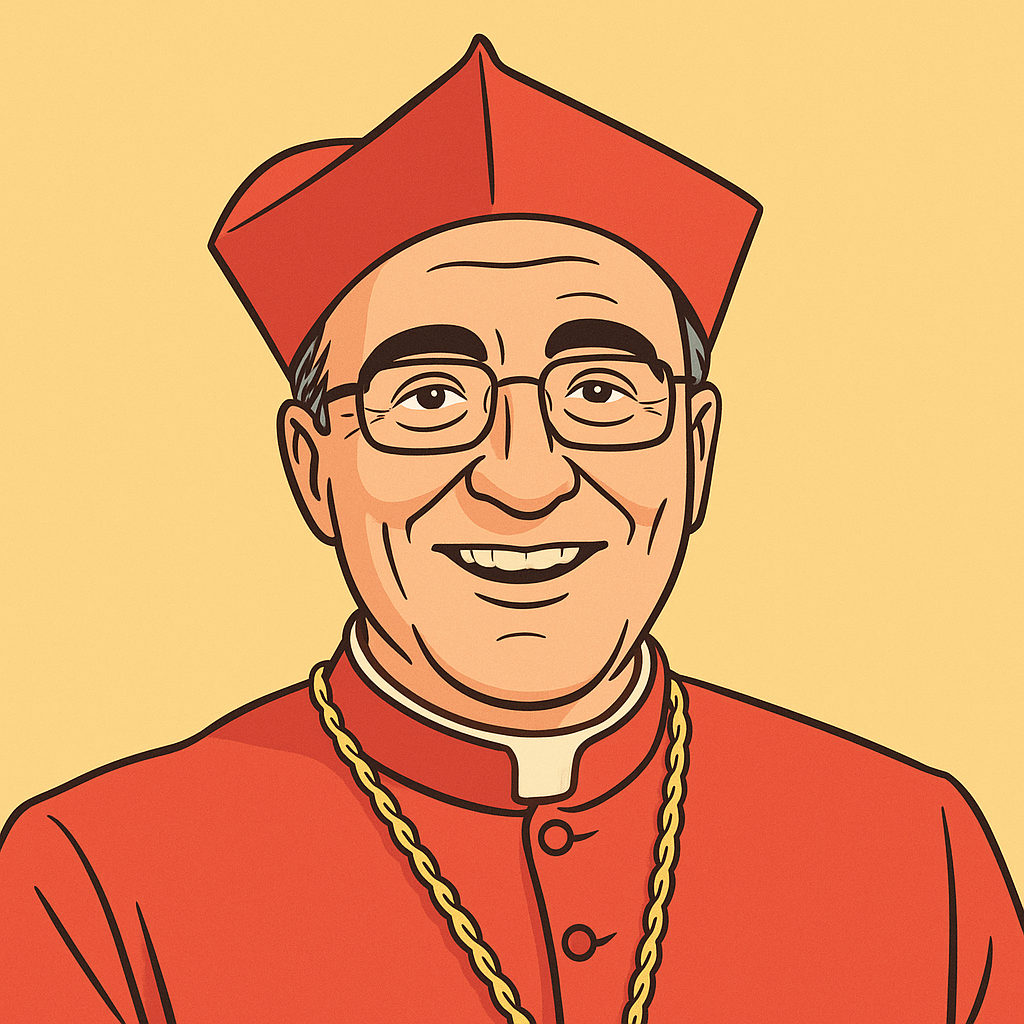
Geboren am 4. Juli 1959 in Montevideo (Uruguay), ist Daniel Fernando Sturla Berhouet der Jüngste von fünf Geschwistern. Als Waise in der Adoleszenz wurde er stark von der salesianischen Spiritualität geprägt, die er im Institut Johannes XXIII. in Montevideo entdeckte. Er trat 1979 in die Gesellschaft des heiligen Franz von Sales (Salesianer Don Boscos) ein und legte am 31. Januar 1980 seine Ordensgelübde ab. (Daniel Fernando Sturla Berhouet, Daniel Fernando Sturla Berhouet)
Nach Studien in Zivilrecht, Philosophie, Erziehungswissenschaften und Theologie wurde er am 21. November 1987 zum Priester geweiht. Anschließend übernahm er verschiedene Verantwortungspositionen bei den Salesianern in Uruguay: Novizenmeister, Direktor des Instituts Johannes XXIII., Professor für Kirchengeschichte und dann 2008 Provinzial des Ordens. Im Jahr 2009 wurde er zum Präsidenten der Konferenz der Ordensleute in Uruguay gewählt. (Daniel Fernando Sturla Berhouet)
Am 10. Dezember 2011 wurde er von Papst Benedikt XVI. zum Weihbischof von Montevideo ernannt und erhielt am 4. März 2012 die Bischofsweihe. Am 11. Februar 2014 ernannte ihn Papst Franziskus zum Erzbischof von Montevideo. Am 14. Februar 2015 wurde er zum Kardinal kreiert und erhielt den Titel eines Kardinalpriesters von Santa Galla. (Daniel Fernando Sturla Berhouet, Daniel Sturla)
Innerhalb der römischen Kurie ist er Mitglied mehrerer Dikasterien, darunter die Kongregation für die Institute des geweihten Lebens und die Gesellschaften des apostolischen Lebens, der Päpstliche Rat zur Förderung der Neuevangelisierung, die Päpstliche Kommission für Lateinamerika und die Kardinalskommission der Verwaltung des Vermögens des Apostolischen Stuhls. (Daniel Fernando Sturla Berhouet)
Kardinal Sturla gilt allgemein als konservativ. Er hat Kritik an Dokumenten wie Fiducia supplicans geäußert, das er als "mehrdeutig, spaltend und verwirrend" bezeichnet. Er steht auch dem Konzept der Synodalität skeptisch gegenüber. (Who Will Be The Next Pope? - BIG C CATHOLICS)
Als Mitglied mehrerer römischer Dikasterien und einflussreiche Persönlichkeit in Lateinamerika verfügt er über ein umfangreiches Netzwerk. Sein Einfluss innerhalb des Kardinalskollegiums bleibt jedoch im Vergleich zu prominenteren Figuren moderat.
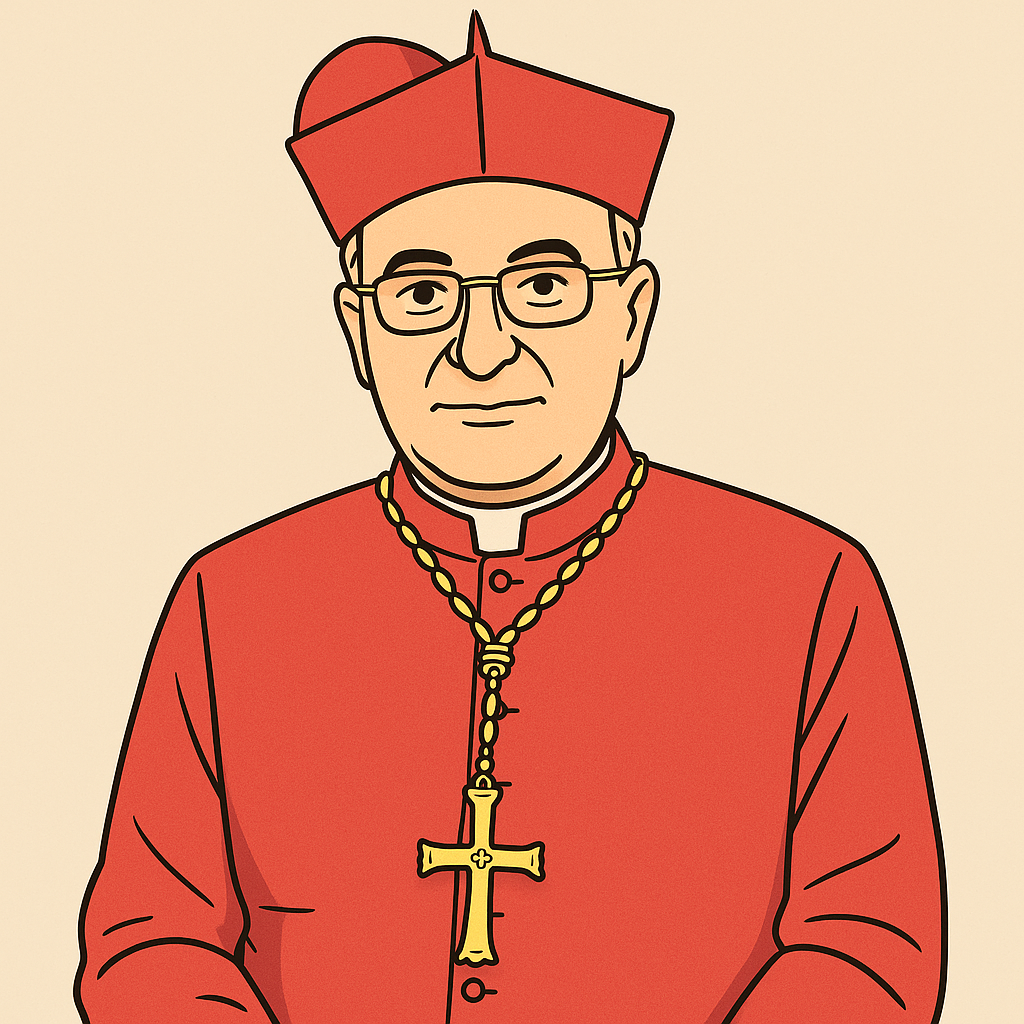
Geboren am 15. September 1944 in Genua, ist Mauro Piacenza einer der wenigen europäischen Kardinäle, der eine strenge wissenschaftliche Ausbildung mit solider theologischer Expertise kombiniert. Er wurde 1969 von Kardinal Giuseppe Siri zum Priester geweiht. Mit einem Doktortitel im Kirchenrecht der Päpstlichen Lateranuniversität übte er verschiedene pastorale und akademische Ämter in seiner Heimatdiözese aus, darunter als Dozent für Dogmatik und Geschichte des Atheismus. Er diente auch als Richter am kirchlichen Tribunal und als diözesaner Assistent für die Kirchliche Bewegung für kulturelles Engagement. (Mauro Piacenza, Mauro Piacenza)
1990 trat er der Römischen Kurie in der Kongregation für den Klerus bei, wo er nacheinander als Büroleiter (1997), Untersekretär (2000) und dann Sekretär (2007) tätig war. Im Jahr 2003 ernannte ihn Johannes Paul II. zum Präsidenten der Päpstlichen Kommission für das kulturelle Erbe der Kirche und zum Titularbischof von Victoriana. Er wurde am 15. November 2003 von Kardinal Tarcisio Bertone zum Bischof geweiht. 2004 wurde er auch Präsident der Päpstlichen Kommission für Sakrale Archäologie. (Mauro Piacenza)
Am 7. Oktober 2010 ernannte ihn Benedikt XVI. zum Präfekten der Kongregation für den Klerus und zum Präsidenten des Internationalen Rates für Katechese. Er wurde am 20. November 2010 zum Kardinal kreiert, mit dem Titel von San Paolo alle Tre Fontane. Im Jahr 2011 wurde er zum internationalen Präsidenten der päpstlichen Stiftung Kirche in Not ernannt. (Mauro Piacenza, Mauro Piacenza)
Am 21. September 2013 ernannte ihn Papst Franziskus zum Großpönitentiar der Apostolischen Pönitentiarie, eine Position, die er bis zum 6. April 2024 innehatte. Am 3. Mai 2021 wurde er in den Rang eines Kardinalpriesters erhoben. Er erreichte am 15. September 2024 das Alter von 80 Jahren und verlor damit sein Wahlrecht im Konklave. (Mauro Piacenza, Mauro Piacenza)
Kardinal Piacenza gilt als Konservativer, der der Tradition und kirchlichen Disziplin verbunden ist. Er hat oft vor moralischem Relativismus gewarnt und die Bedeutung des Beichtsakraments betont. Sein theologischer Ansatz konzentriert sich auf die Treue zum Lehramt und die Verteidigung der traditionellen Werte der Kirche.
Netzwerk und Gewicht innerhalb des KardinalskollegiumsObwohl er unter dem Pontifikat von Benedikt XVI. einflussreich war, hat sein Einfluss unter Papst Franziskus abgenommen. Sein Netzwerk besteht hauptsächlich aus konservativen Kardinälen und Prälaten. Sein Rückzug aus dem Wahlkollegium begrenzt jedoch nunmehr sein Gewicht bei zukünftigen Entscheidungen.
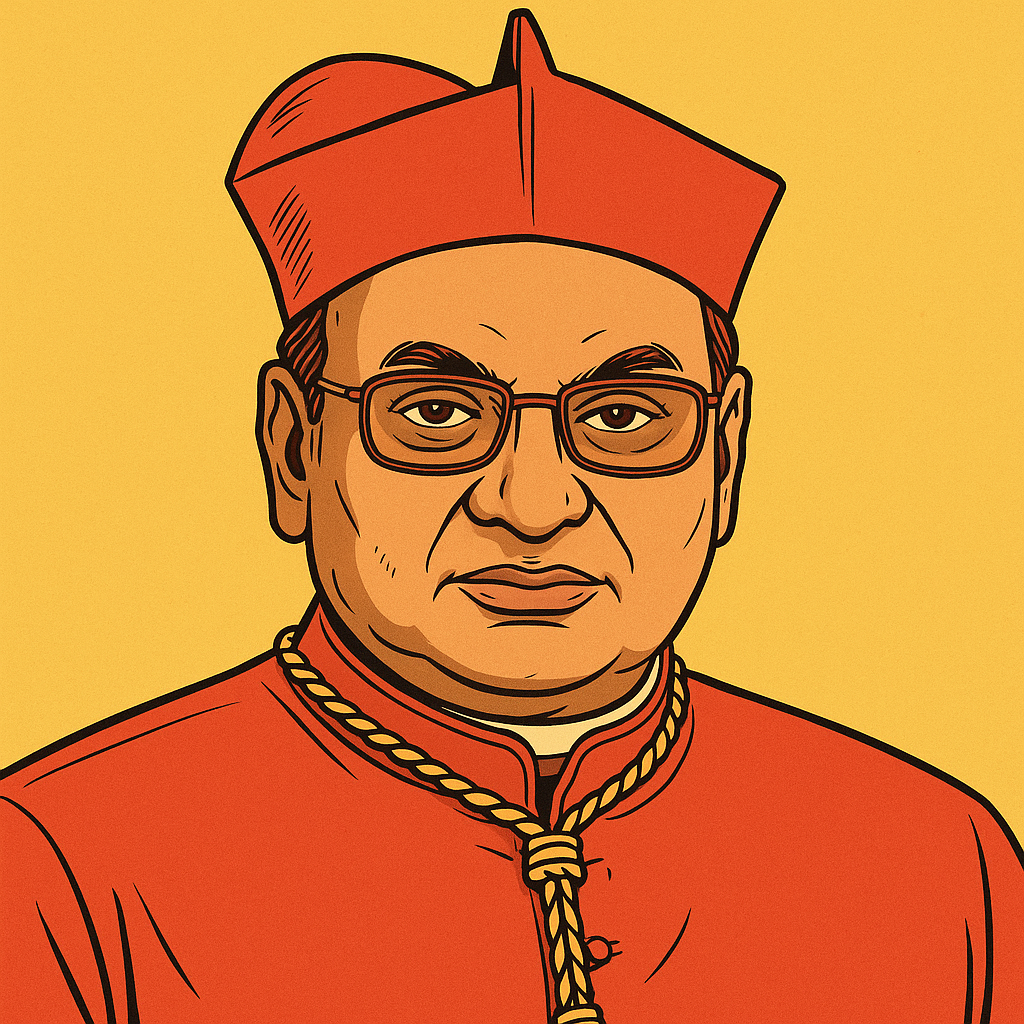
Geboren am 15. November 1947 in Polgahawela, Sri Lanka, ist Kardinal Albert Malcolm Ranjith Patabendige Don eine herausragende Persönlichkeit der asiatischen katholischen Kirche. Er wurde 1975 zum Priester geweiht und setzte sein Studium in Rom fort, wo er an der Päpstlichen Urbaniana-Universität einen Abschluss in biblischer Theologie erwarb. (24 Albert Malcolm Ranjith Patabendige Stock Photos, High-Res Pictures ...)
Sein kirchlicher Werdegang ist geprägt von einem Wechsel zwischen pastoralen Verantwortlichkeiten und Funktionen innerhalb der Römischen Kurie. Er diente insbesondere als stellvertretender Sekretär der Kongregation für die Evangelisierung der Völker und als Apostolischer Nuntius in Indonesien und Osttimor. Im Jahr 2005 wurde er zum Sekretär der Kongregation für den Gottesdienst und die Sakramentenordnung ernannt, bevor er 2009 zum Erzbischof von Colombo ernannt wurde. Er wurde 2010 von Papst Benedikt XVI. zum Kardinal erhoben. (Revue de presse : De quel continent viendra le prochain Pape ?, How Old Will the Next Pope Be? - National Catholic Register)
Als Erzbischof von Colombo spielte er eine zentrale Rolle im religiösen und sozialen Leben Sri Lankas, insbesondere indem er nach den Osteranschlägen 2019 zu Gerechtigkeit und Versöhnung aufrief. Er ist auch für seine kritischen Positionen gegenüber bestimmten Regierungspolitiken Sri Lankas bekannt.
Kardinal Ranjith gilt als konservativ, insbesondere in liturgischen und doktrinären Fragen. Er wird oft mit der Denkrichtung von Papst Benedikt XVI. in Verbindung gebracht. Er wird jedoch nicht als direkter Gegner der Reformen von Papst Franziskus wahrgenommen, sondern nimmt eher eine Haltung der Diskretion und Treue zur Institution ein.
Obwohl er über etablierte Beziehungen innerhalb der Kurie und unter asiatischen Kardinälen verfügt, scheint sein Einfluss im Vergleich zu den ausgedehnteren Netzwerken einiger anderer Papabili begrenzt zu sein. Sein Profil könnte dennoch eine Minderheit von Kardinälen ansprechen, die sich eine Rückkehr zu einer gewissen Tradition wünschen.

Geboren am 22. Juni 1953 in Duivendrecht, Niederlande, ist Willem Jacobus Eijk einer der wenigen europäischen Kardinäle, die eine strenge wissenschaftliche Ausbildung mit solider theologischer Expertise kombinieren. Bevor er ins Priesterseminar eintrat, studierte er Medizin an der Universität Amsterdam und praktizierte kurzzeitig als Arzt. Anschließend promovierte er in medizinischer Bioethik an der Universität Leiden und erwarb einen weiteren Doktortitel in Philosophie an der Päpstlichen Universität St. Thomas von Aquin in Rom.
1985 wurde er zum Priester für die Diözese Roermond geweiht und lehrte medizinische Ethik und Moraltheologie, während er im Vorstand des niederländischen Verbandes der lebensschützenden Ärzte tätig war. 1999 wurde er zum Bischof von Groningen-Leeuwarden ernannt, dann 2007 zum Metropolitanerzbischof von Utrecht. Er wurde von Benedikt XVI. im Konsistorium vom 18. Februar 2012 zum Kardinal kreiert. (Dutch Willem Jacobus Eijk Photos and Premium High Res Pictures - Getty ...)
Kardinal Eijk ist Mitglied mehrerer römischer Dikasterien, darunter die Kongregation für die Glaubenslehre und das Dikasterium für Gesundheit. Er ist auch bekannt für seine öffentlichen Stellungnahmen zu bioethischen Fragen, Sexualmoral und doktrinärer Treue, insbesondere im Kontext einer stark säkularisierten niederländischen Kirche.
Kardinal Eijk wird eindeutig als Vertreter der konservativen Strömung identifiziert. Er hat Kritik am synodalen Prozess in Deutschland und an bestimmten Ausrichtungen der Synode über die Synodalität geäußert und vor den Risiken doktrinärer Verwirrung und kirchlicher Fragmentierung gewarnt. Er plädiert für die Zentralität des römischen Lehramtes und strikte Treue zur katholischen Lehre.
Obwohl er nicht zu den profiliertesten Figuren des Kardinalskollegiums gehört, genießt Eijk eine gewisse Wertschätzung unter Kardinälen, die der Tradition und doktrinären Klarheit verbunden sind. Seine Wahl durch Benedikt XVI. stellt ihn in die Reihe der Kardinäle, die für ihre Treue zum Lehramt ernannt wurden. Sein Einfluss bleibt jedoch im Vergleich zu zentraleren Figuren in der Kurie oder in größeren globalen Diözesen begrenzt.
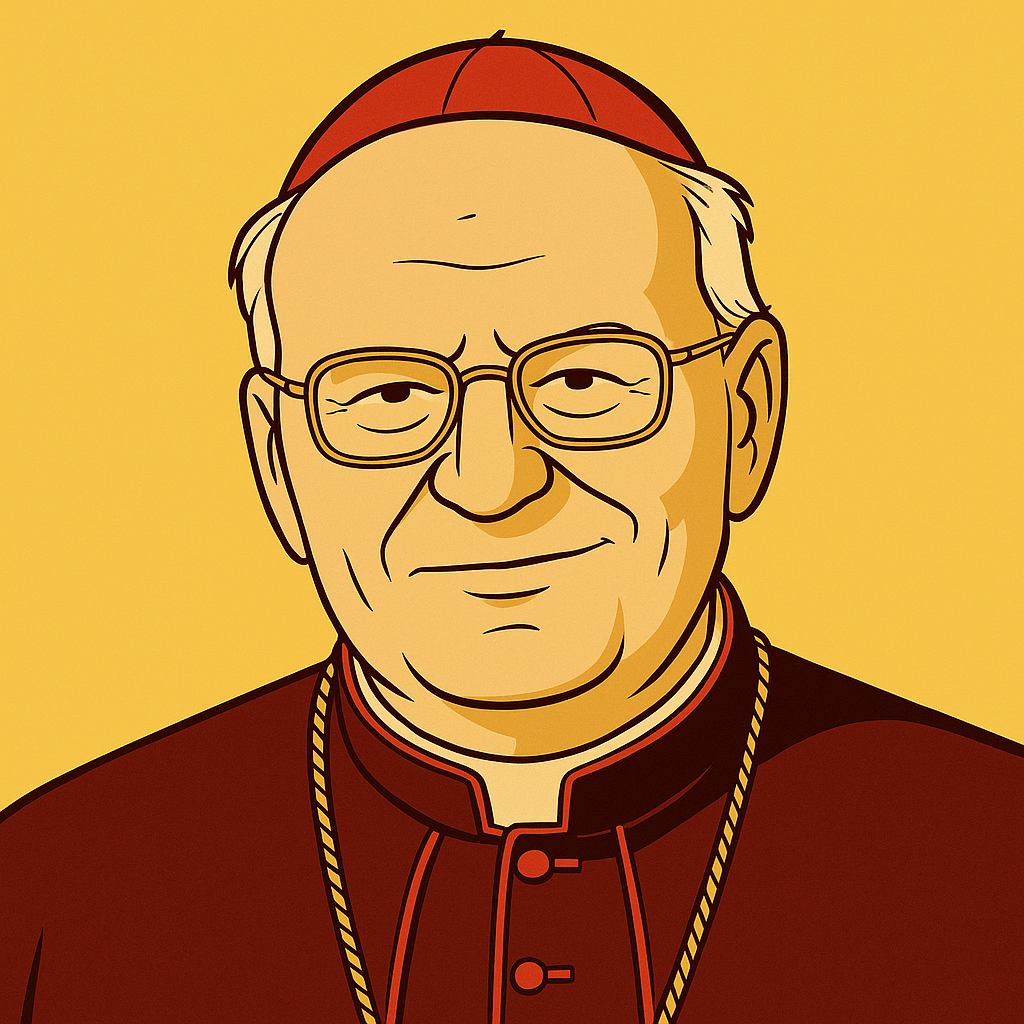
Geboren am 25. Juni 1952 in Budapest, ist Péter Erdő eine bedeutende Figur in der ungarischen katholischen Kirche. 1975 zum Priester geweiht, wurde er 2002 zum Erzbischof von Esztergom-Budapest ernannt und 2003 von Johannes Paul II. zum Kardinal kreiert. Er ist auch seit 2005 Präsident der Ungarischen Bischofskonferenz und war von 2006 bis 2016 Vorsitzender des Rates der Europäischen Bischofskonferenzen. (Péter Erdő)
Als anerkannter Spezialist für Kirchenrecht war er Professor an der Katholischen Universität Péter Pázmány und hat zahlreiche akademische Werke veröffentlicht. Seine theologische und juristische Expertise hat ihm bemerkenswerten Einfluss im Vatikan verschafft, insbesondere als Generalberichterstatter der Familiensynode 2014. (Le nom des cardinaux 'papabile' qui reviennent le plus souvent, Hungary's Péter Erdő is a strong candidate to be the next pope - and that's reason to be fearful)
Als Polyglott spricht er fließend Ungarisch, Italienisch, Französisch, Englisch und Latein. Er ist auch bekannt für seine marianische Verehrung, insbesondere für Unsere Liebe Frau vom Trost.
Erdő wird im Allgemeinen unter den moderaten Konservativen eingeordnet. Er verteidigt eine strenge Auslegung der katholischen Lehre, insbesondere in Fragen der Familie und Sexualität, während er extreme Positionen vermeidet. Er hat Vorbehalte gegenüber der Erweiterung der Rechte von LGBTQ+-Personen und wiederverheirateten Geschiedenen innerhalb der Kirche geäußert. (Hungary's Péter Erdő is a strong candidate to be the next pope - and that's reason to be fearful)
Obwohl die Mehrheit der Kardinalwähler von Papst Franziskus ernannt wurde, profitiert Erdő von einem soliden Netzwerk, insbesondere in Mittel- und Osteuropa. Sein akademisches Profil und seine Synodalerfahrung verleihen ihm Glaubwürdigkeit bei vielen Kardinälen, auch in Afrika und Lateinamerika.
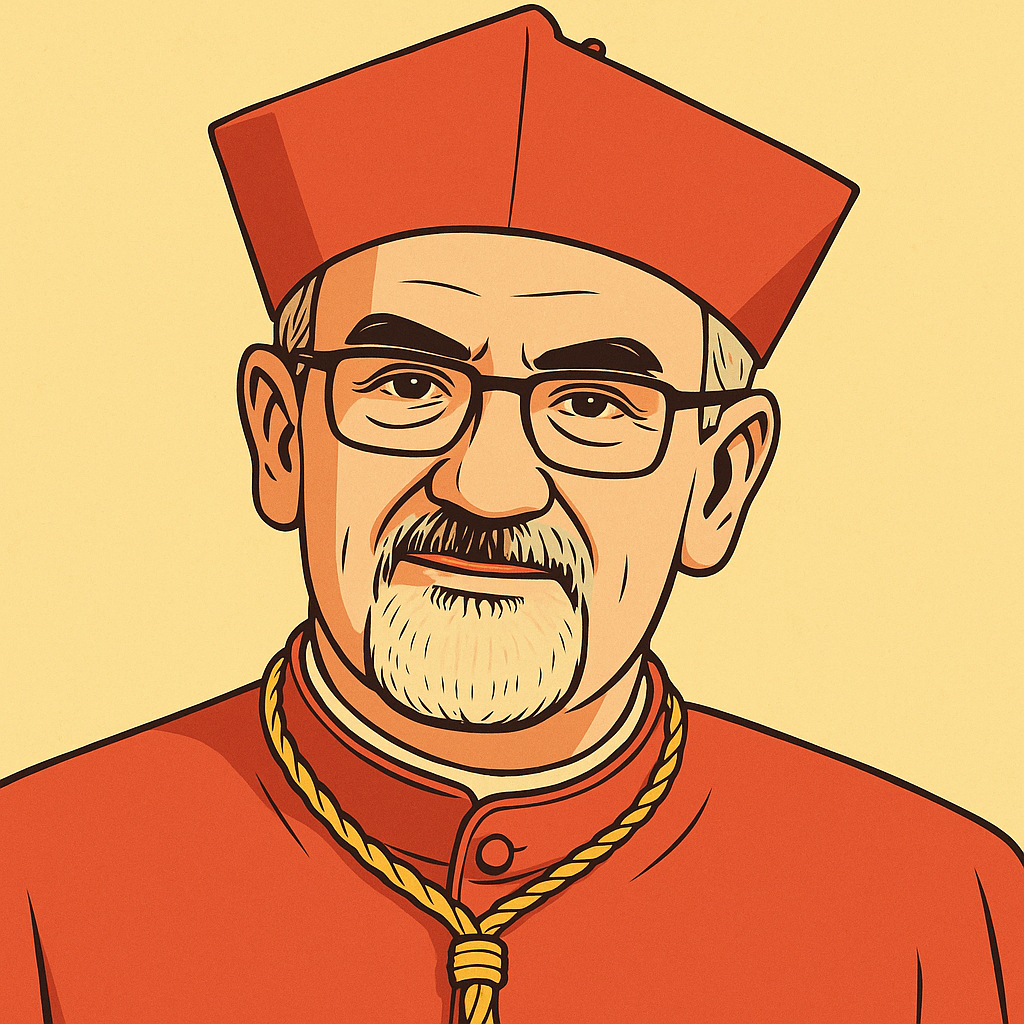
Geboren am 21. April 1965 in Cologno al Serio bei Bergamo in Italien, ist Pierbattista Pizzaballa ein Franziskaner, der den Großteil seines priesterlichen Lebens dem Heiligen Land gewidmet hat. 1990 wurde er von Kardinal Giacomo Biffi zum Priester geweiht und trat 1999 der Franziskanischen Kustodie des Heiligen Landes bei, wo er verschiedene Positionen innehatte, unter anderem als Superior des Klosters der Heiligen Simeon und Anna in Jerusalem. (Pierbattista Pizzaballa)
2004 wurde er zum Kustos des Heiligen Landes gewählt, eine Rolle, die er bis 2016 innehatte. In dieser Zeit zeichnete er sich durch seine Bemühungen um den interreligiösen Dialog und sein Engagement für den Frieden aus. 2016 wurde er zum Apostolischen Administrator des Lateinischen Patriarchats von Jerusalem ernannt und wurde 2020 dessen Patriarch. Im September 2023 wurde er von Papst Franziskus zum Kardinal ernannt. (Pierbattista Pizzaballa)
Pizzaballa wird als gemäßigt wahrgenommen und vermeidet sowohl progressive als auch konservative Extreme. Diese Neutralität könnte ihn für verschiedene Strömungen innerhalb des Kardinalskollegiums akzeptabel machen. (Le nom des cardinaux 'papabile' qui reviennent le plus souvent)
Obwohl er erst kürzlich zum Kardinal ernannt wurde, verleihen ihm sein Ruf als Vermittler und seine Erfahrung als Patriarch von Jerusalem eine respektierte Statur. Sein internationales Profil und sein Engagement für den Frieden könnten ein Kardinalskollegium ansprechen, das die Kirche um die Werte des Dialogs und der Versöhnung einen möchte. (Cardinal Pizzaballa's Meteoric Rise to 'Papabile')
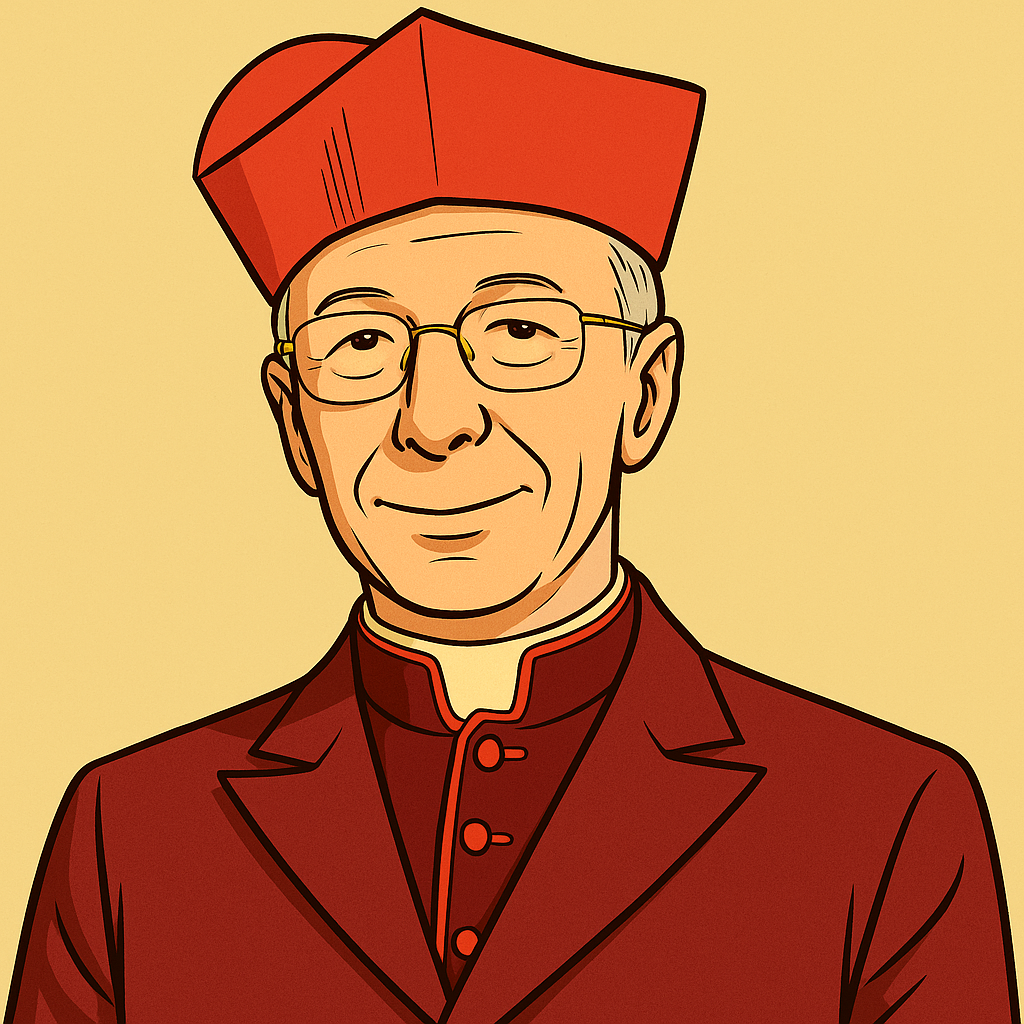
Geboren am 14. Januar 1943 in Pontevico, Italien, wurde Angelo Bagnasco am 29. Juni 1966 von Kardinal Giuseppe Siri zum Priester geweiht. Er promovierte 1979 in Philosophie an der Universität Genua und lehrte bis 1998 Metaphysik und zeitgenössischen Atheismus an der Theologischen Fakultät Norditaliens. (Cardinal Angelo Bagnasco)
Er wurde 1998 zum Bischof von Pesaro ernannt und 2000 zum Erzbischof befördert. 2003 wurde er Militärordinarius für Italien, bevor er 2006 zum Erzbischof von Genua ernannt wurde. Von Benedikt XVI. 2007 zum Kardinal kreiert, war er von 2007 bis 2017 Vorsitzender der Italienischen Bischofskonferenz (CEI) und von 2016 bis 2021 Präsident des Rates der Europäischen Bischofskonferenzen (CCEE). 2020 trat er als Erzbischof von Genua in den Ruhestand. (Angelo Cardinal Bagnasco - Catholic-Hierarchy, Angelo Bagnasco Biography - Pantheon World)
Bagnasco gilt als Konservativer, der der doktrinären Tradition der Kirche treu ist. Er hat entschiedene Positionen zu Themen wie Sterbehilfe, Abtreibung und gleichgeschlechtliche Ehe bezogen, die er als "trojanisches Pferd" für die Gesellschaft bezeichnete.
Obwohl er eine einflussreiche Figur innerhalb der italienischen und europäischen Kirche war, ist sein aktueller Einfluss aufgrund seines Alters und seines Ruhestands begrenzt. Er wird jedoch weiterhin für seine Erfahrung und seinen Beitrag zur Kirche respektiert.

Geboren 1948 in Monhla, Burma (Myanmar), trat Charles Maung Bo der Salesianischen Gesellschaft Don Boscos bei und wurde 1976 zum Priester geweiht. Er wurde 1990 zum Bischof von Lashio ernannt, dann 2003 zum Erzbischof von Yangon. Im Jahr 2015 wurde er von Papst Franziskus zum Kardinal kreiert und wurde damit der erste birmanische Kardinal.
Von 2018 bis 2022 war er auch Präsident der Föderation der Asiatischen Bischofskonferenzen (FABC) und spielte eine Schlüsselrolle bei der Koordination der pastoralen und sozialen Bemühungen der Kirche in Asien. Als Mitglied des Päpstlichen Rates für den Interreligiösen Dialog hat er sich für die Förderung von Frieden und Versöhnung in einem Land eingesetzt, das von ethnischen und religiösen Konflikten geprägt ist.
Kardinal Bo wird oft als Moderater wahrgenommen, der Treue zur katholischen Lehre mit Offenheit für interreligiösen und sozialen Dialog verbindet. Er verkörpert eine Kirche, die sich für Fragen der sozialen Gerechtigkeit, des Friedens und der Menschenrechte einsetzt, ohne radikale theologische Positionen einzunehmen.
Seine Rolle als Präsident der FABC hat es ihm ermöglicht, enge Beziehungen zu vielen asiatischen Bischöfen und Kardinälen zu knüpfen. Sein direkter Einfluss innerhalb des Kardinalskollegiums bleibt jedoch begrenzt, insbesondere aufgrund seiner geringen Präsenz im Vatikan und der Vorherrschaft europäischer und amerikanischer Kardinäle.
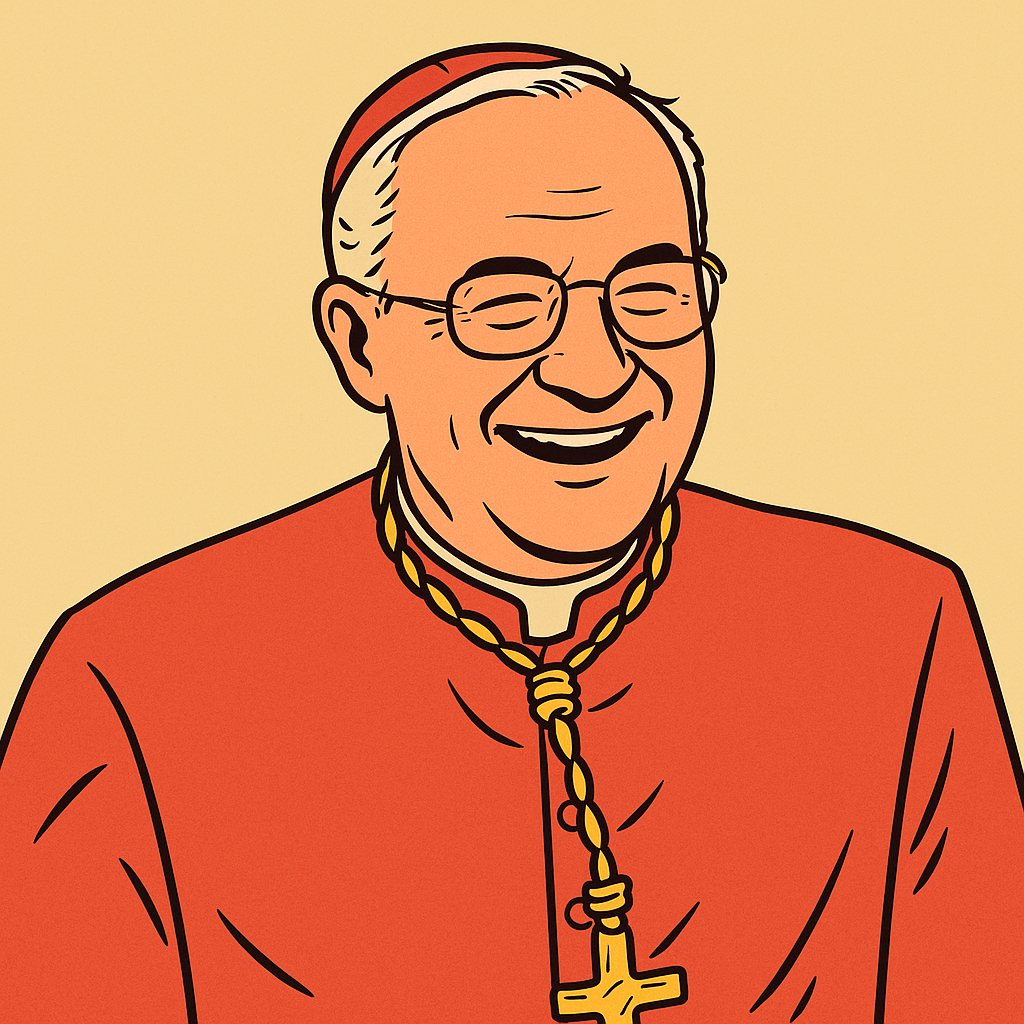
Marc Ouellet wurde am 8. Juni 1944 in La Motte, Quebec, geboren. Er wurde 1968 zum Priester geweiht und trat 1972 der Gesellschaft der Sulpizianer bei. Als ausgebildeter Theologe lehrte er in verschiedenen Seminaren in Kanada, Kolumbien und Rom. Im Jahr 2001 wurde er zum Sekretär des Päpstlichen Rates zur Förderung der Einheit der Christen ernannt, dann 2002 zum Erzbischof von Quebec. Er wurde 2003 von Johannes Paul II. zum Kardinal kreiert.
Im Jahr 2010 ernannte ihn Benedikt XVI. zum Präfekten der Kongregation für die Bischöfe (jetzt Dikasterium für die Bischöfe), eine Position, die er bis 2023 innehatte. In dieser Funktion spielte er eine zentrale Rolle bei der Ernennung von Bischöfen weltweit. Er war auch Präsident der Päpstlichen Kommission für Lateinamerika.
Während seines Mandats verteidigte er entschieden den priesterlichen Zölibat, insbesondere während der Amazonas-Synode im Jahr 2019, als er das Buch Freunde des Bräutigams veröffentlichte, um die Bedeutung dieser Disziplin in der lateinischen Kirche zu bekräftigen.
Kardinal Ouellet gilt als gemäßigter Konservativer. Er verteidigt traditionelle Positionen zu Themen wie priesterlicher Zölibat und lehnt die Frauenordination ab. Allerdings hat er auch einige Reformen von Papst Franziskus unterstützt, insbesondere bei der Auswahl von Bischöfen, wobei er pastorale Profile bevorzugt, die den Menschen nahe stehen.
Obwohl er kein Wähler mehr ist, bleibt sein Einfluss aufgrund seiner Jahre als Leiter des Dikasteriums für die Bischöfe bemerkenswert. Er hat zur Ernennung vieler Bischöfe und Kardinäle beigetragen, was ihm ein umfangreiches Netzwerk innerhalb der Kirche verschafft. Seine jüngste Pensionierung und Kontroversen haben ihn jedoch vom aktuellen Entscheidungszentrum entfernt.

Geboren am 24. September 1949 in Sorengo in der Schweiz als Kind schwedischer Eltern, wuchs Anders Arborelius in Lund im Süden Schwedens auf. Er stammt aus einer nicht praktizierenden lutherischen Familie und konvertierte im Alter von 20 Jahren zum Katholizismus, nachdem er von den Birgittenschwestern und der Lektüre der Autobiographie der heiligen Thérèse von Lisieux beeinflusst worden war. Zwei Jahre später trat er bei den Unbeschuhten Karmeliten im Kloster Norraby ein. Er legte 1977 in Brügge seine ewigen Gelübde ab und wurde 1979 in Malmö zum Priester geweiht.
Mit einem Abschluss in modernen Sprachen von der Universität Lund und einem Doktortitel in Theologie vom Teresianum in Rom wurde er 1998 von Johannes Paul II. zum Bischof von Stockholm ernannt und wurde damit der erste katholische Bischof Schwedens seit der Reformation. Im Jahr 2017 ernannte ihn Papst Franziskus zum Kardinal und machte ihn damit zum ersten Kardinal in der Geschichte Schwedens und Skandinaviens.
Innerhalb der römischen Kurie war er Mitglied des Päpstlichen Rates für die Förderung der Einheit der Christen, der Kongregation für den Klerus, der Kongregation für die Ostkirchen, des Wirtschaftsrates und des Dikasteriums für die Bischöfe. Von 2005 bis 2015 war er auch Vorsitzender der Skandinavischen Bischofskonferenz.
Kardinal Arborelius gilt als gemäßigt, mit einer tiefen spirituellen Sensibilität, die er seiner karmelitischen Ausbildung verdankt. Er betont Barmherzigkeit, Einheit und Dialog und bleibt gleichzeitig der traditionellen Lehre der Kirche treu. Er hat sein Unbehagen angesichts der Spekulationen über das Konklave zum Ausdruck gebracht und die Wichtigkeit betont, die Papstwahl nicht zu politisieren.
Obwohl er nicht zu den einflussreichsten Figuren des Kardinalskollegiums gehört, verleihen ihm seine Teilnahme an verschiedenen Dikasterien und sein Engagement für die christliche Einheit eine gewisse Anerkennung. Sein Profil als demütiger und erfahrener Hirte könnte Kardinäle ansprechen, die einen Übergangskandidaten suchen, der in der Lage ist, das Gleichgewicht innerhalb der Kirche zu wahren.
Diese Kardinäle nehmen eine mittlere Position ein, sind sehr diskret in ihren Aussagen, sind aber höchstwahrscheinlich der "Franziskus-Partei" wohlgesonnen, während sie einige traditionellere Positionen beibehalten.

Jean-Marc Aveline wurde am 26. Dezember 1958 in Sidi Bel Abbès im französischen Algerien geboren. Nach der Unabhängigkeit ließ sich seine Familie in Marseille nieder, wo er seine Schulbildung absolvierte. Er trat 1977 in das interdiözesane Seminar von Avignon ein und setzte sein Studium am Karmelitenseminar in Paris fort, wo er einen Doppelabschluss in Theologie und Philosophie sowie einen Master in Theologie erwarb. Im Jahr 2000 verteidigte er eine Doktorarbeit mit dem Titel Für eine christologische Theologie der Religionen.
Er wurde am 3. November 1984 zum Priester für die Erzdiözese Marseille geweiht und hatte verschiedene Positionen im Zusammenhang mit theologischer Ausbildung und interreligiösem Dialog inne. 1992 gründete er das Institut für Wissenschaft und Theologie der Religionen (ISTR) in Marseille, das er bis 2002 leitete. Er war auch Direktor des Katholischen Instituts des Mittelmeers und lehrte an der theologischen Fakultät der Katholischen Universität Lyon.
Er wurde 2013 zum Weihbischof von Marseille ernannt und wurde 2019 Metropolitanerzbischof von Marseille. Am 27. August 2022 wurde er von Papst Franziskus zum Kardinal kreiert, mit dem Titel eines Kardinalpriesters von Santa Maria ai Monti. Er ist Mitglied des Dikasteriums für die Bischöfe und des Dikasteriums für den interreligiösen Dialog.
Am 2. April 2025 wurde er zum Vorsitzenden der Französischen Bischofskonferenz gewählt, wobei seine Amtszeit am 1. Juli 2025 beginnen soll.
Kardinal Aveline gilt als gemäßigt progressiv. Er unterstützt eine Kirche, die offen für den Dialog ist und aufmerksam auf zeitgenössische Herausforderungen wie Migration und Säkularisierung reagiert. Er verkörpert eine ausgewogene Linie zwischen Tradition und Offenheit, im Einklang mit dem Erbe von Papst Franziskus.
Er genießt die Unterstützung einflussreicher Kardinäle wie Jean-Claude Hollerich und Reinhard Marx. Seine Ernennung durch Papst Franziskus und seine aktive Teilnahme an Synoden stärken seine Position innerhalb des Kardinalskollegiums. Darüber hinaus verleiht ihm seine Rolle als Vorsitzender der Französischen Bischofskonferenz zusätzliche Legitimität.
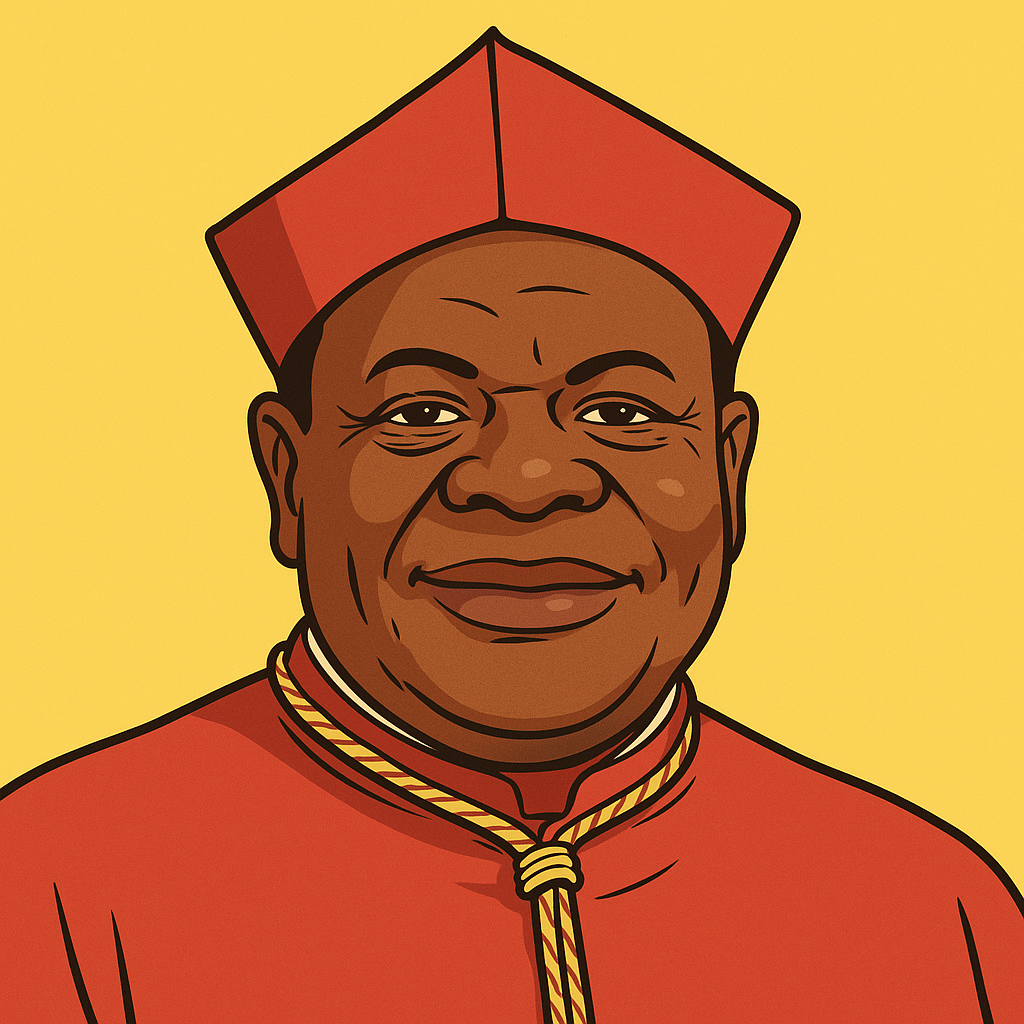
Fridolin Ambongo Besungu wurde am 24. Januar 1960 in Boto in der Demokratischen Republik Kongo geboren. Er wurde 1988 als Mitglied des Kapuzinerordens zum Priester geweiht und erwarb an der Alphonsianum-Akademie in Rom ein Lizenziat in Moraltheologie. Er wurde 2004 von Johannes Paul II. zum Bischof von Bokungu-Ikela ernannt, dann 2008 zum Apostolischen Administrator von Kole. Im Jahr 2016 wurde er Erzbischof von Mbandaka-Bikoro, bevor er 2018 zum Koadjutor von Kinshasa ernannt wurde, wo er Laurent Monsengwo Pasinya nachfolgte. Im Oktober 2019 wurde er von Papst Franziskus zum Kardinal kreiert. (Quién es Fridolin Ambongo Besungu, el papable que puede ser el primer papa africano en 16 siglos, Fridolin Ambongo Besungu)
Ambongo ist seit 2020 Mitglied des Kardinalsrats, einer ausgewählten Gruppe, die den Papst bei der Reform der Römischen Kurie berät. Im Februar 2023 wurde er zum Präsidenten des Symposiums der Bischofskonferenzen von Afrika und Madagaskar (SECAM) gewählt, wodurch sein Einfluss auf dem afrikanischen Kontinent gestärkt wurde. (Le nom des cardinaux 'papabile' qui reviennent le plus souvent, Fridolin Ambongo Besungu)
Er ist bekannt für sein Engagement für soziale Gerechtigkeit, seine Anprangerung von Korruption, Ausbeutung natürlicher Ressourcen und ausländischer Einmischung in Afrika. Er hat auch eine aktive Rolle bei der politischen Vermittlung in der Demokratischen Republik Kongo gespielt, insbesondere während der Wahlen von 2018. (Quién es Fridolin Ambongo Besungu, el papable que puede ser el primer papa africano en 16 siglos)
Ambongo verkörpert eine konservative Linie in Bezug auf doktrinäre und moralische Fragen, während er in sozialen und politischen Fragen progressiv ist. Er verteidigt eine Kirche, die in afrikanischen kulturellen Realitäten verwurzelt ist, und wendet sich gegen das, was er als "kulturelle Kolonisierung" durch den Westen betrachtet.
Mit seiner Rolle innerhalb des SECAM und des Kardinalsrats verfügt Ambongo über ein solides Netzwerk, insbesondere unter afrikanischen Kardinälen und jenen, die für Fragen der sozialen Gerechtigkeit sensibel sind. Seine konservativen Positionen zu bestimmten Themen könnten jedoch seine Attraktivität für progressive Kardinäle einschränken. (Fridolin Ambongo Besungu)
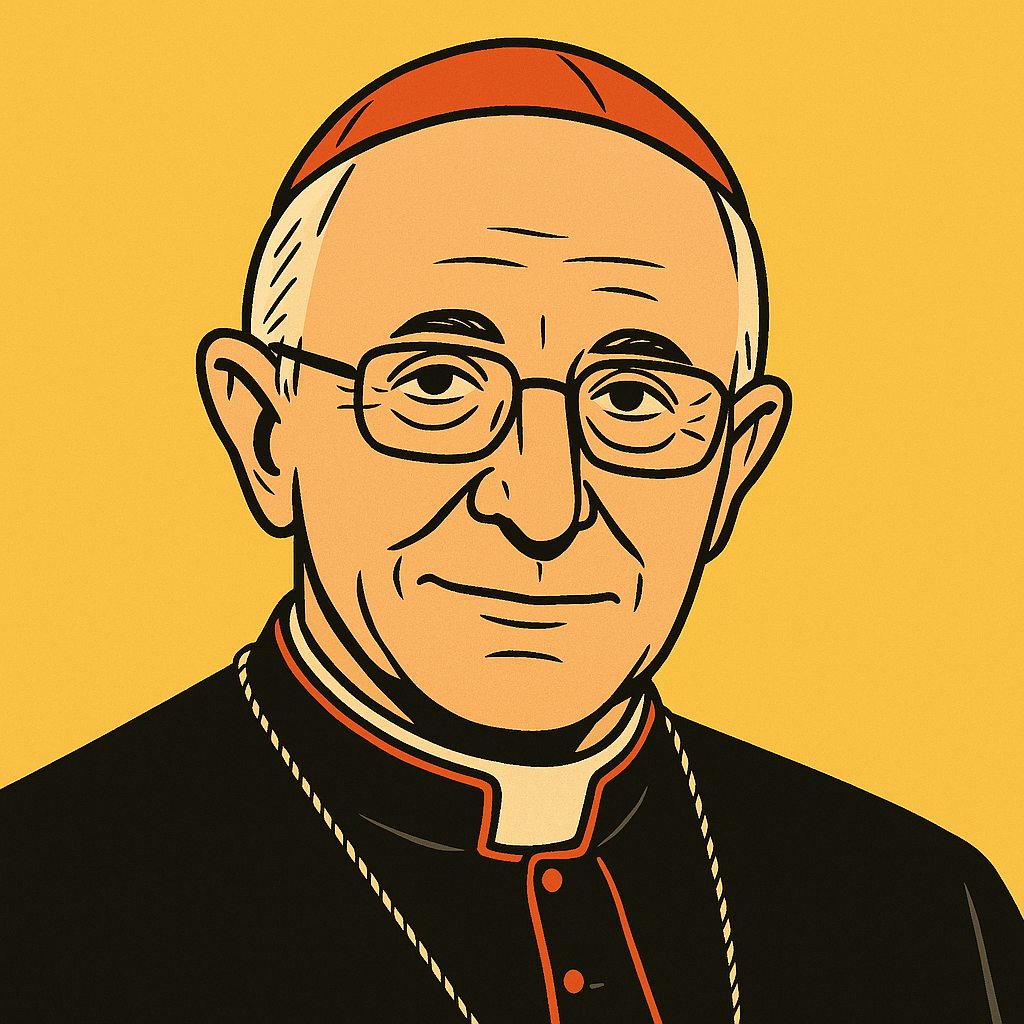
Fernando Filoni wurde am 15. April 1946 in Manduria, in der Region Apulien in Italien, geboren. Zum Priester geweiht im Jahr 1970, trat er 1981 in den diplomatischen Dienst des Heiligen Stuhls ein. Seine diplomatische Karriere führte ihn an sensible Posten, insbesondere in den Iran während des Iran-Irak-Krieges, nach Brasilien, auf die Philippinen und vor allem in den Irak, wo er von 2001 bis 2006 Apostolischer Nuntius war. Er blieb auch während der amerikanischen Invasion von 2003 auf seinem Posten, was ihm besondere Anerkennung für seinen Mut und sein pastorales Engagement einbrachte.
Von 2007 bis 2011 war er Substitut für Allgemeine Angelegenheiten im Staatssekretariat, eine strategische Position im Herzen der vatikanischen Regierung. Im Jahr 2011 ernannte ihn Benedikt XVI. zum Präfekten der Kongregation für die Evangelisierung der Völker, eine Position, die er bis 2019 innehatte. Er wurde 2012 zum Kardinal kreiert.
Seit 2019 ist er Großmeister des Ritterordens vom Heiligen Grab zu Jerusalem, eine ehrenvolle, aber einflussreiche Position, insbesondere in Bezug auf die Unterstützung der Christen im Heiligen Land.
Filoni gilt generell als gemäßigt konservativ. Er ist der doktrinären Tradition verbunden, während er offen für interkulturelle Dialoge ist, insbesondere in Asien. Sein Ansatz ist pragmatisch, konzentriert auf die evangelisierende Mission der Kirche.
Seine Erfahrung und früheren Funktionen sichern ihm einen gewissen Respekt unter den Kardinälen, insbesondere denjenigen, die von Benedikt XVI. ernannt wurden. Allerdings scheint er nicht über einen ausreichend strukturierten Unterstützerblock zu verfügen, um eine starke Kandidatur zu tragen.
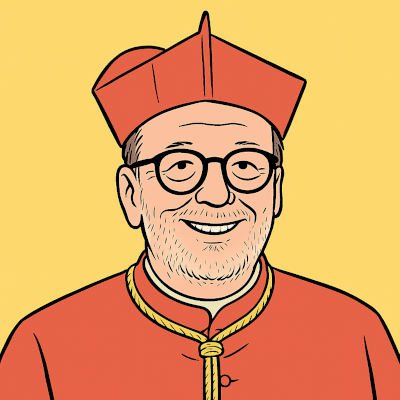
Geboren am 7. Oktober 1955 in Verona (Italien), wurde Claudio Gugerotti 1982 zum Priester für das Bistum Verona geweiht. Mitglied der frommen Gesellschaft von Don Nicola Mazza, hat er in Orientalischen Sprachen und Literatur an der Universität Ca' Foscari in Venedig studiert, einen Doktortitel in orientalischen kirchlichen Wissenschaften am Pontifikal Institut für Orientalische Studien erworben sowie ein Lizentiat in heiliger Liturgie am Athener Pontifikal-Atheneum Sant'Anselmo. (Brief biographies of 21 future Cardinals – FABC)
Er lehrte Patrologie und orientalische Liturgie am Institut für ökumenische Studien in Verona und am Pontifikal Institut für Orientalische Studien. 1985 trat er in die Kongregation für die orientalischen Kirchen ein und wurde 1997 Untersekretär. (Cardinal-to-be Claudio Gugerotti, expert in Eastern Europe - Aleteia)
2001 ernannte ihn Johannes Paul II. zum Titularerzbischof von Ravello und zum Apostolischen Nuntius in Georgien, Armenien und Aserbaidschan. Danach war er Nuntius in Weißrussland (2011–2015), in der Ukraine (2015–2020) und im Vereinigten Königreich (2020–2022). Im November 2022 wurde er zum Präfekten des Dikasteriums für die orientalischen Kirchen ernannt, eine Position, die er bis 2025 innehatte. Am 30. September 2023 wurde er von Papst Franziskus zum Kardinal erhoben. (Claudio Gugerotti, Claudio Gugerotti, Le cardinal Claudio Gugerotti envoyé par le pape François en Syrie ...)
Er ist Mitglied mehrerer Dikasterien der römischen Kurie, darunter diejenigen für die Glaubenslehre, die Bischöfe, die Einheit der Christen, den interreligiösen Dialog, Kultur und Bildung sowie der päpstlichen Kommission für den Staat der Vatikanstadt.
Claudio Gugerotti gilt allgemein als gemäßigt und mit einer besonderen Sensibilität für die orientalischen Traditionen der Kirche. Er wird als treu zur Linie von Papst Franziskus angesehen, insbesondere in Bezug auf den interreligiösen Dialog und die Aufmerksamkeit für die Peripherien.
Als von Papst Franziskus im Jahr 2023 zum Kardinal erhobener Gugerotti genießt er die Unterstützung vieler von Franziskus ernannter Kardinäle, die eine Mehrheit im Wahlkollegium bilden. Seine diplomatische Erfahrung und seine etablierten Beziehungen innerhalb der Kurie stärken sein Einflussnetzwerk.
Diese Kardinäle befürworten die Reformen von Franziskus und möchten seine Ausrichtung fortsetzen oder vertiefen. Sie repräsentieren den progressivsten Flügel der Papabili und befürworten im Allgemeinen Dezentralisierung, größere Inklusion und Anpassung der Kirche an die zeitgenössischen Realitäten.

Kurt Koch wurde am 15. März 1950 in Emmenbrücke im Kanton Luzern, Schweiz, geboren. Nach einem Theologiestudium an der Universität Luzern und der Ludwig-Maximilians-Universität in München erwarb er 1975 eine Lizenz in Theologie. Er wurde am 20. Juni 1982 zum Priester für die Diözese Basel geweiht. (Cardinal Kurt Koch - The College of Cardinals Report, Swiss Cardinal to Speak on Ecumenism | CUA, Kurt Koch)
Von 1982 bis 1989 lehrte er Dogmatik und Moraltheologie am Katechetischen Institut Luzern, dann wurde er Professor für Dogmatik und Liturgiewissenschaft an der Theologischen Fakultät Luzern bis zu seiner Ernennung zum Bischof. (Kurt Koch)
Am 21. August 1995 wurde er von Papst Johannes Paul II. zum Bischof von Basel ernannt, der ihn am 6. Januar 1996 persönlich weihte. Er hatte diese Position bis 2010 inne. (Kurt Koch, Kurt Koch)
Am 1. Juli 2010 ernannte ihn Papst Benedikt XVI. zum Präsidenten des Päpstlichen Rates zur Förderung der Einheit der Christen, eine Position, die er noch immer innehat. Er ist auch Präsident der Kommission für die religiösen Beziehungen zum Judentum. Am 20. November 2010 wurde er zum Kardinaldiakon von Nostra Signora del Sacro Cuore kreiert. Am 3. Mai 2021 wurde er in den Rang eines Kardinalpriesters erhoben. (Kurt Koch)
Kardinal Koch gilt als Moderater mit einer konservativen Sensibilität in doktrinären Fragen, während er offen für den interreligiösen und ökumenischen Dialog ist. Er hat die Religionsfreiheit verteidigt, auch für Muslime in der Schweiz, während er gleichzeitig Gegenseitigkeit in mehrheitlich muslimischen Ländern forderte. (Kurt Koch)
Als Mitglied mehrerer römischer Dikasterien und als Teilnehmer am Konklave von 2013 verfügt er über ein ausgedehntes Netzwerk innerhalb der Kurie und des Kardinalskollegiums. Seine langjährige Erfahrung im Vatikan stärkt seine institutionelle Glaubwürdigkeit.
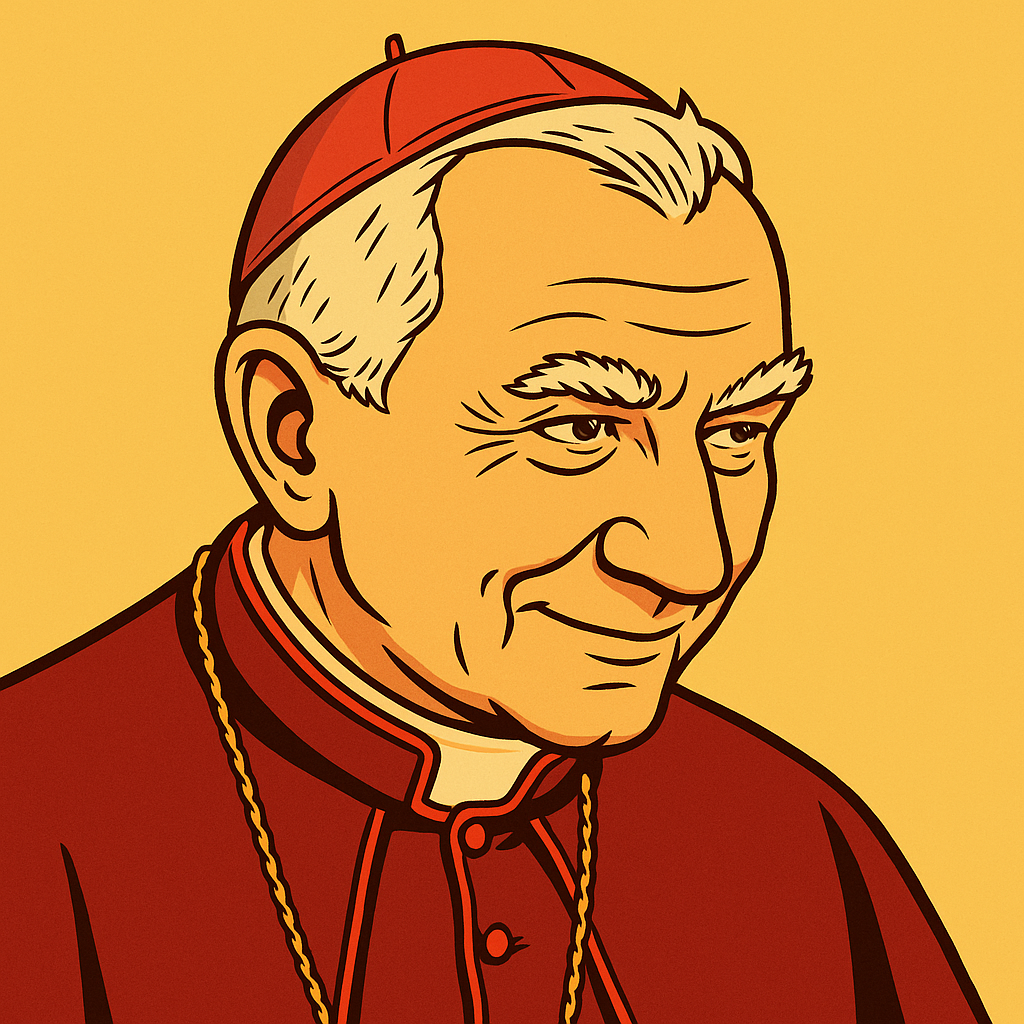
Geboren am 17. Januar 1955 in Schiavon in der Provinz Vicenza (Italien), wurde Pietro Parolin 1980 zum Priester geweiht. Nach einer kurzen seelsorgerischen Erfahrung trat er 1983 in die Päpstliche Diplomatenakademie ein und begann so eine diplomatische Karriere im Heiligen Stuhl. Er diente nacheinander in den Nuntiaturen in Nigeria, Mexiko und Venezuela, bevor er 2002 ins Staatssekretariat wechselte.
2009 wurde er zum Apostolischen Nuntius in Venezuela ernannt, und 2013 berief ihn Papst Franziskus zum Staatssekretär des Vatikans, eine Position, die er bis zum Tod des Papstes im April 2025 innehatte. Als Staatssekretär spielte Parolin eine zentrale Rolle in der vatikanischen Diplomatie, insbesondere bei der umstrittenen Vereinbarung mit China über die Ernennung von Bischöfen und bei der Annäherung zwischen den Vereinigten Staaten und Kuba im Jahr 2014.
Im Jahr 2014 wurde Pietro Parolin von Papst Franziskus zum Kardinal kreiert. 2018 wurde er in den Rang eines Kardinalbischofs erhoben und erhielt den suburbikarischen Titel von Albano. Nach dem Tod von Papst Franziskus im Jahr 2025 leitet er die Sitzungen des Konklaves, das am 7. Mai einberufen wurde, als ranghöchster wahlberechtigter Kardinalbischof.
Parolin gilt als Moderater oder sogar als Zentrist. Er unterstützt die Reformen von Papst Franziskus und verfolgt gleichzeitig einen vorsichtigen Ansatz bei sensiblen Themen. Er hat konservative Positionen zur gleichgeschlechtlichen Ehe geäußert, hat sich aber offen gezeigt für Diskussionen über den priesterlichen Zölibat und die Rolle der Frauen in der Kirche. (Politics aside for one day, world leaders to gather at Vatican and ..., Quién es Pietro Parolin, el candidato italiano que suena con más fuerza para ser el nuevo Papa de Roma)
Als Dekan des Kardinalskollegiums und ehemaliger Staatssekretär genießt Parolin große Sichtbarkeit und ein umfangreiches Netzwerk. Er wird für seine Fähigkeit respektiert, die Komplexitäten der Kurie zu navigieren und stabile diplomatische Beziehungen aufrechtzuerhalten. (Conclave de 2025)
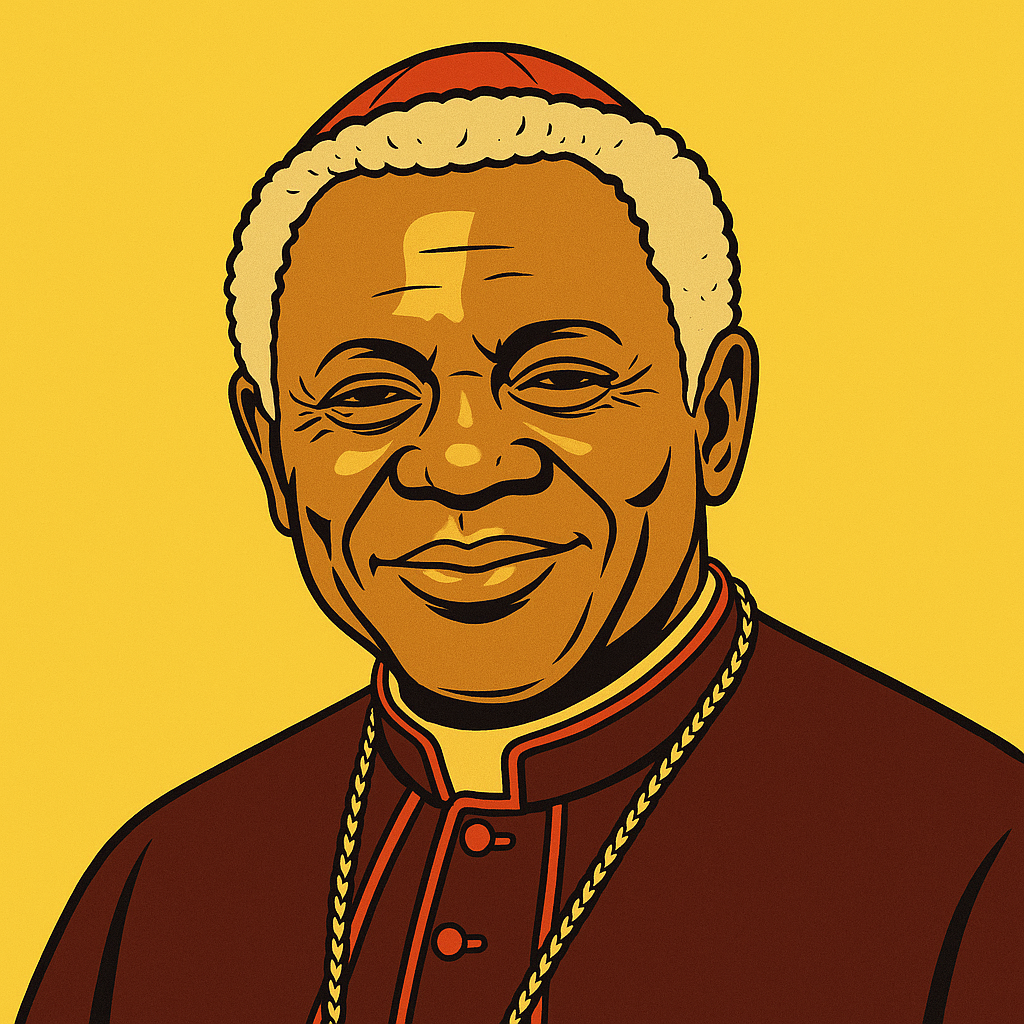
Geboren am 11. Oktober 1948 in Wassaw Nsuta, Ghana, ist Peter Turkson der vierte aus einer Familie mit zehn Kindern. Aus bescheidenen Verhältnissen stammend, wurde er 1975 zum Priester geweiht nach Studien in Ghana, den Vereinigten Staaten und Rom, wo er ein Doktorat in Heiliger Schrift am Päpstlichen Bibelinstitut erwarb.
1992 wurde er zum Erzbischof von Cape Coast ernannt und wurde damit Primas von Ghana. 2003 erhob ihn Johannes Paul II. zum Kardinal, womit er der erste ghanaische Kardinal der Geschichte wurde. Er war Vorsitzender der Bischofskonferenz von Ghana von 1997 bis 2005.
2009 ernannte ihn Benedikt XVI. zum Präsidenten des Päpstlichen Rates für Gerechtigkeit und Frieden. 2016 wurde er der erste Präfekt des Dikasteriums für die ganzheitliche Entwicklung des Menschen, eine Position, die er bis 2021 innehatte. Seit 2022 ist er Kanzler der Päpstlichen Akademie der Wissenschaften und der Päpstlichen Akademie der Sozialwissenschaften.
Kardinal Turkson wird allgemein als konservativ in doktrinären Fragen angesehen, während er sich in sozialen und ökologischen Fragen engagiert. Er hat insbesondere an der Enzyklika Laudato si' von Papst Franziskus mitgewirkt, die die ökologische und soziale Gerechtigkeit hervorhebt.
Seine lange Karriere innerhalb der römischen Kurie und seine Beziehungen zu den Päpsten Johannes Paul II., Benedikt XVI. und Franziskus verleihen ihm eine respektierte Statur. Allerdings wird er nicht als Anführer einer spezifischen Gruppe von Kardinälen angesehen, was seinen direkten Einfluss während des Konklaves einschränken könnte.

Stephen Brislin, geboren am 24. September 1956 in Welkom, Südafrika, ist ein einflussreicher Prälat der südafrikanischen katholischen Kirche. Mit schottischen und irischen Wurzeln studierte er Psychologie an der Universität Kapstadt, Philosophie am St. John Vianney-Seminar in Pretoria, Theologie am Mill Hill Missionary Institute in London und erwarb einen Abschluss an der Katholischen Universität Löwen. Am 19. November 1983 wurde er zum Priester für die Diözese Kroonstad geweiht und 2006 zum Bischof derselben Diözese ernannt, dann 2009 zum Erzbischof von Kapstadt. Diese Position hatte er bis Oktober 2024 inne, als er in die Erzdiözese Johannesburg versetzt wurde. (Stephen Brislin)
Brislin war von 2013 bis 2019 Präsident der Südafrikanischen Katholischen Bischofskonferenz (SACBC) und von 2012 bis 2016 Präsident des Interregionalen Bischofstreffens des Südlichen Afrika (IMBISA). Er wurde von Papst Franziskus beim Konsistorium vom 30. September 2023 zum Kardinal kreiert und erhielt den Titel eines Kardinalpriesters von Santa Maria Domenica Mazzarello. Seit Oktober 2023 ist er auch Mitglied des Dikasteriums für die Selig- und Heiligsprechungsprozesse. (Stephen Brislin)
Brislin gilt als Moderater, der der pastoralen Vision von Papst Franziskus entspricht. Er unterstützte offene Ansätze während der Familiensynoden, blieb aber der Lehre treu. Sein Episkopat ist geprägt von Aufmerksamkeit für soziale Fragen und Gerechtigkeit, ohne radikale Positionen einzunehmen. (Stephen Brislin)
Als Präsident der SACBC und IMBISA hat Brislin enge Beziehungen zu den Bischöfen des südlichen Afrika geknüpft. Seine jüngste Erhebung zum Kardinalat und seine Ernennung nach Johannesburg stärken sein Ansehen. Sein Einfluss bleibt jedoch hauptsächlich regional, und er müsste sich auf die Unterstützung von Kardinälen verlassen, die seine pastorale Vision teilen, um auf eine Wahl hoffen zu können. (Stephen Brislin)

Geboren am 21. Juni 1957 in Manila, auf den Philippinen, ist Luis Antonio Gokim Tagle eine bedeutende Persönlichkeit der asiatischen katholischen Kirche. Zum Priester geweiht im Jahr 1982, wurde er 2001 zum Bischof von Imus ernannt, dann 2011 zum Erzbischof von Manila. Im Jahr 2012 erhob ihn Papst Benedikt XVI. zum Kardinal.
Im Dezember 2019 ernannte ihn Papst Franziskus zum Präfekten der Kongregation für die Evangelisierung der Völker. Mit dem Inkrafttreten der apostolischen Konstitution Praedicate Evangelium im Jahr 2022 wurde diese Kongregation in das neue Dikasterium für die Evangelisierung integriert, wo Tagle als Pro-Präfekt der Sektion für die erste Evangelisierung und die neuen Teilkirchen diente.
Tagle war auch von 2015 bis 2023 Präsident von Caritas Internationalis. Allerdings kündigte der Vatikan im November 2022 eine Reorganisation von Caritas an und verwies auf "reale Mängel" in der Verwaltung, was zum Ende seines Mandats an der Spitze der Organisation führte.
Im Februar 2024 wurde er von Frankreich in Anerkennung seines Engagements für internationale Solidarität in den Rang eines Offiziers der Ehrenlegion erhoben.
Tagle wird allgemein als progressiv wahrgenommen, im Einklang mit den Reformen von Papst Franziskus. Er unterstützt einen inklusiven pastoralen Ansatz, der Barmherzigkeit, interreligiösen Dialog und soziales Engagement betont.
Da er von Benedikt XVI. zum Kardinal ernannt wurde und wichtige Positionen unter dem Pontifikat von Franziskus innehatte, genießt Tagle eine übergreifende Anerkennung innerhalb des Kardinalskollegiums. Seine aktive Teilnahme an Synoden und seine Rolle im Vatikan stärken seine Sichtbarkeit und seinen Einfluss.
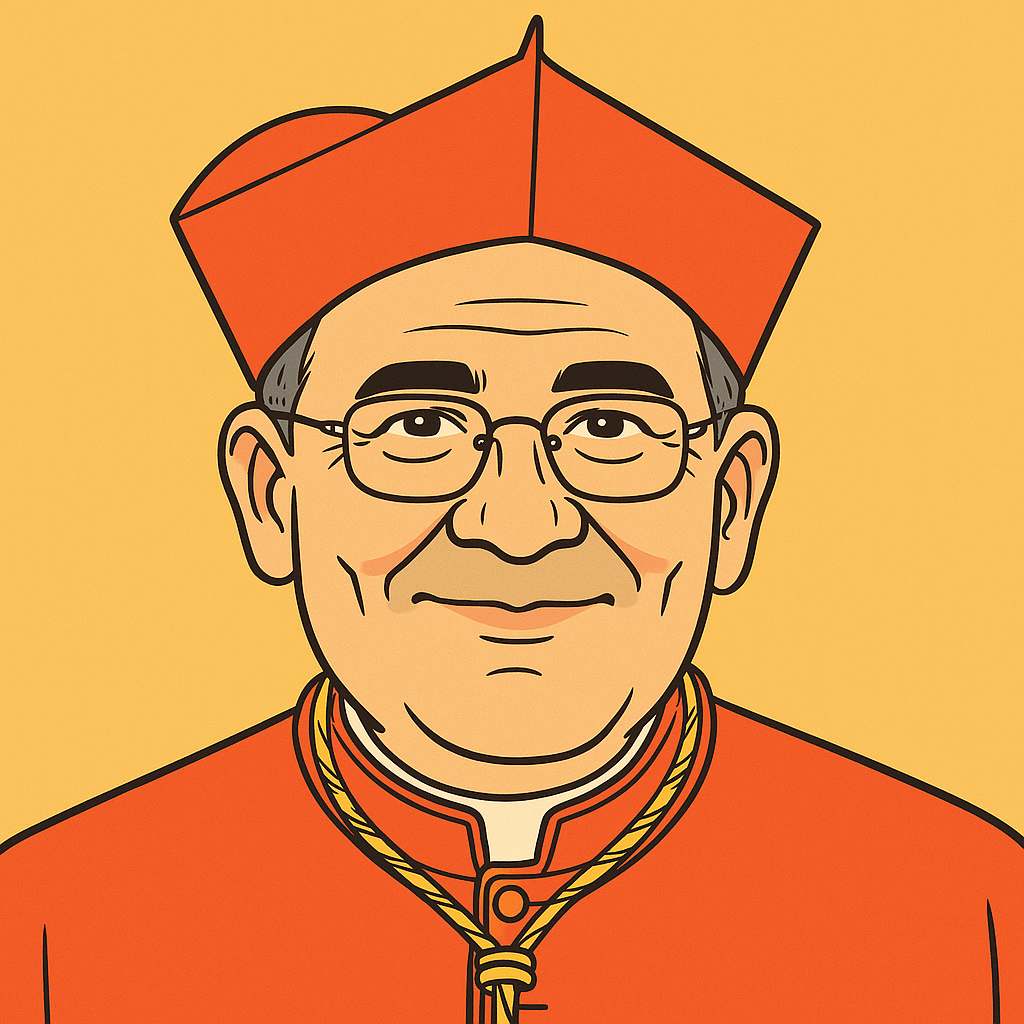
Geboren am 15. Dezember 1965 in Machico auf der Insel Madeira, Portugal, wurde José Tolentino de Mendonça am 28. Juli 1990 zum Priester geweiht. Mit einem Doktortitel in biblischer Theologie zeichnete er sich durch eine bemerkenswerte akademische und literarische Karriere aus und veröffentlichte Werke der Poesie, Essays und des Theaters. (José Tolentino de Mendonça)
Im Jahr 2011 wurde er Berater des Päpstlichen Rates für die Kultur. Im Juni 2018 ernannte ihn Papst Franziskus zum Archivar und Bibliothekar der Heiligen Römischen Kirche, und er wurde am 28. Juli 2018 zum Titularbischof von Suava geweiht. Am 5. Oktober 2019 wurde er zum Kardinalsdiakon von Santi Domenico e Sisto kreiert. (Profiles of Pope Francis' New Cardinals - National Catholic Register, José Tolentino de Mendonça)
Am 26. September 2022 wurde er zum Präfekten des Dikasteriums für Kultur und Bildung ernannt, einer strategischen Position innerhalb der Römischen Kurie. Er ist auch Mitglied mehrerer wichtiger Dikasterien, darunter diejenigen für die Evangelisierung der Völker, die Heiligsprechungsprozesse, die Bischöfe, den Gottesdienst und die Sakramentenordnung sowie die Glaubenslehre. (José Tolentino de Mendonça)
Kardinal Tolentino de Mendonça gilt als einer der progressivsten Papabili, der für eine offene, dialogbereite Kirche eintritt, die aufmerksam für zeitgenössische Realitäten ist. (José Tolentino de Mendonça)
Er profitiert von der Unterstützung der Gemeinschaft Sant'Egidio, die in progressiven kirchlichen Kreisen einflussreich ist. Seine Nähe zu Papst Franziskus und seine Verantwortlichkeiten innerhalb der Kurie stärken sein Netzwerk und seinen Einfluss. (José Tolentino de Mendonça)
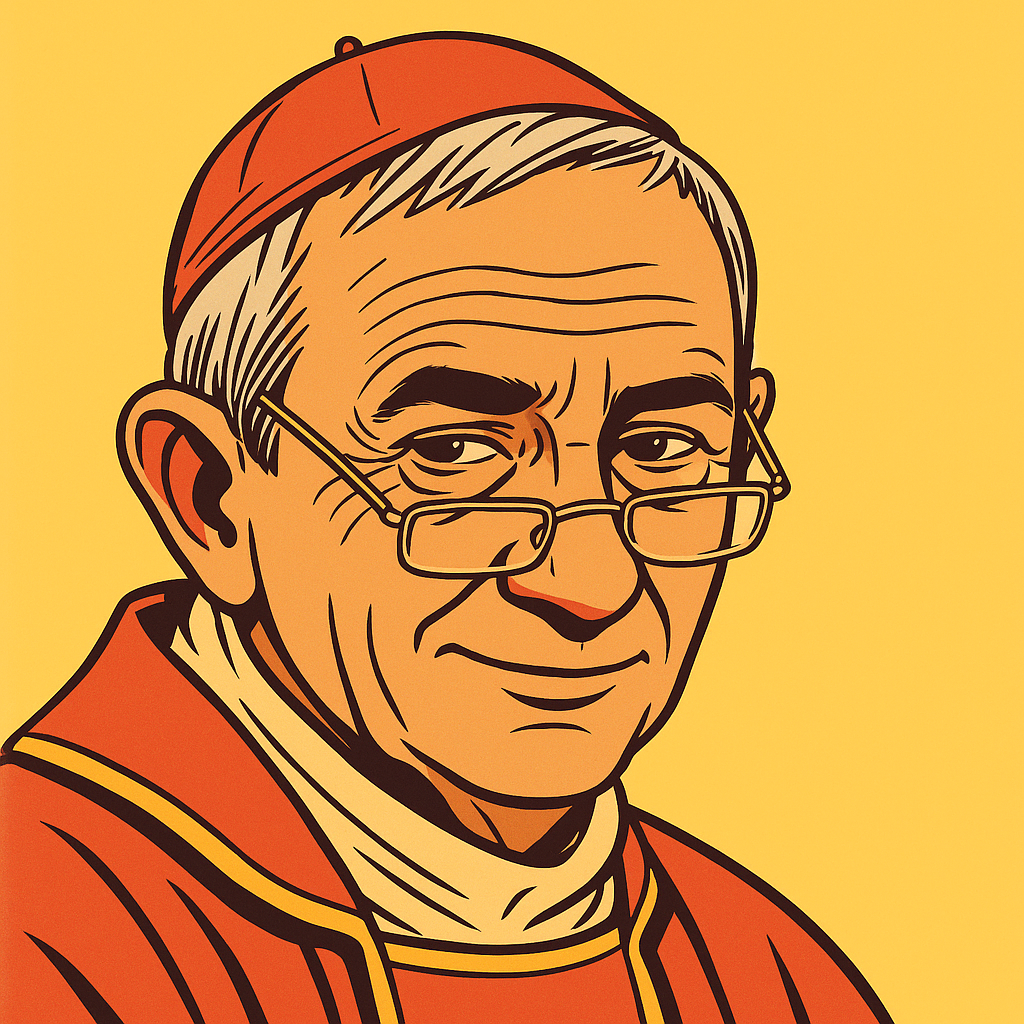
Geboren in Rom am 11. Oktober 1955, ist Matteo Maria Zuppi das fünfte von sechs Kindern einer Familie mit tiefen Wurzeln in der katholischen Kirche. Sein Vater war Journalist bei L'Osservatore Romano und seine Mutter war die Nichte von Kardinal Carlo Confalonieri, dem ehemaligen Dekan des Kardinalskollegiums. Er wurde 1981 zum Priester geweiht nach einem Studium der Theologie an der Pontificia Università Lateranense und der Literatur an der Universität La Sapienza in Rom.
Zuppi diente 19 Jahre lang als Vikar und dann als Pfarrer der Basilika Santa Maria in Trastevere, einem Nervenzentrum der Gemeinschaft Sant'Egidio, einer Laienbewegung, die sich im interreligiösen Dialog und in der Friedensvermittlung engagiert. Er spielte eine wichtige Rolle bei den Verhandlungen, die 1992 zu den Friedensabkommen von Rom führten, die den Bürgerkrieg in Mosambik beendeten.
2012 wurde er von Benedikt XVI. zum Weihbischof von Rom ernannt, dann 2015 von Papst Franziskus zum Erzbischof von Bologna. Letzterer kreierte ihn 2019 zum Kardinal und ernannte ihn 2022 zum Präsidenten der Italienischen Bischofskonferenz.
2023 ernannte ihn Papst Franziskus zum Sondergesandten für den Frieden in der Ukraine, eine Mission, die ihn zu Treffen mit Beamten in Kiew, Moskau und Washington führte, um humanitäre Lösungen und diplomatischen Dialog zu fördern.
Zuppi gilt als progressiver Kardinal, der an den Prioritäten von Papst Franziskus ausgerichtet ist: Aufmerksamkeit für die Armen, interreligiöser Dialog, integrale Ökologie und pastorale Offenheit. Er unterstützt eine synodale und inklusive Kirche, respektiert dabei aber die doktrinäre Tradition.
Als wichtige Figur der italienischen Kirche und nah an Papst Franziskus hat Zuppi ein solides Netzwerk unter den von letzterem ernannten Kardinälen. Sein Einfluss erstreckt sich auch durch seine internationalen Verpflichtungen und seine Rolle in diplomatischen Missionen.